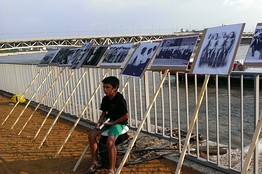WARSAW—Poland is unlikely to get a sovereign rating upgrade any time soon, according to agencies, which have so far ignored remarks by Polish officials who feel their country deserves more recognition for being what they consider a stellar performer during the crisis years.
Fitch Ratings currently rates Poland ’A-’, four notches behind the cherished AAA rating, just like Standard and Poor’s, while Moody’s Investors Service rates the country one level higher at ’A2’.
The credit ratings fare well against its emerging peers, but that doesn’t appease officials.
Top officials of the European Union’s largest emerging economy have urged the agencies to up their countries’ view. Poland was the only EU member to avoid an economic contraction amid the 2009 financial crisis and has on average grown faster than most of the bloc’s states.
It also cut its public debt this year to some 50% of gross domestic product, lower than the EU average. In a controversial move to achieve this, it redeemed sovereign bonds managed by private fund companies this year, rolling back a pension system change of the 1990s and lowering its future borrowing needs in the process.
Central bank chief, Marek Belka, told The Wall Street Journal in late 2011 that a rating upgrade was “clearly within reach.” Finance Minister Mateusz Szczurek this year said an upgrade was possible once Poland is off the EU’s radar for running excessive deficits. Read More »





